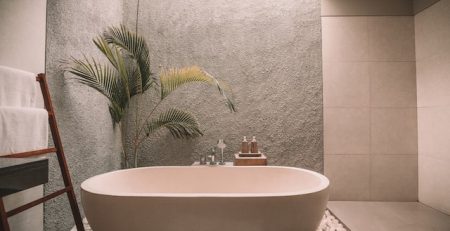Pediatric Massage: A Soothing Solution to Childhood Anxiety
Children may have fewer worries than adults, but their impact on well-being is significant. Parents are naturally overprotective of their young ones, shielding them from stress or circumstances that can make them unhappy. However, this safety net has limitations and your kid can get anxious due to several causes, ranging from starting school to other life transitions.
Unrelieved stress can manifest as physical symptoms, but children don’t know stress-coping strategies. Anxiety may have a more debilitating effect on them. Learn how to spot negative emotions and find out what calms anxiety in kids.
Parent’s Guide to Understanding Childhood Anxiety
Adults experience anxiety differently from kids, who lack the skills to recognize and express it. This deficit often leads to mental health consequences that they can potentially carry into adulthood. Understanding the source of pressure and stress and teaching your child methods to manage it is part of your role.
Types of Anxiety
Childhood anxiety has several types depending on the cause. Treatment interventions are tailored based on the unique features of the emotion.
1. Generalized Anxiety Disorder
This happens when your kid excessively worries about many things, such as grades, test scores and mistakes.
2. Separation Anxiety Disorder
Your young one can feel anxious if they get separated from you, such as when starting school.
3. Social Anxiety Disorder
Social phobia causes your child to fear other people’s opinions or expectations in a social setting. For instance, they may panic during a class presentation
4. Panic Disorder
They may also experience anxiety attacks if they’re in an intensely fearful position, such as if they’re trapped in an enclosed place. This condition often affects teens more than children.
5. Selective Mutism
Your child may feel extreme social phobia and only talk to select people they’re close to, like family members. At school or other places, they may stop talking.
6. Specific Phobias
Some children get anxious for other reasons, such as fear of the dark and loud noises.
These negative feelings are valid, and it’s the responsibility of adults to help children overcome their emotions.
Childhood Anxiety Prevalence and Symptoms
Anxiety can sometimes be helpful. For instance, children getting anxious over their grades may be motivated to study more, but this sensation usually disappears. It may turn into a mental health disorder if not resolved.
Childhood anxiety disorders affect one in eight children, resulting in poor quality of life. Many of these cases are preventable if parents can determine the problem, teach the child how to deal with it and seek professional help. Pessimistic feelings must be addressed to prevent long-term implications.
Parents must learn to identify typical anxiety from a disorder requiring treatment down the line. How do you know when your child is anxious? Here are some signs to watch out for:
- Feeling irritable and clingy
- Sleeping troubles
- Having bad dreams or waking in the night
- Trouble concentrating on tasks
- Experiencing angry outbursts
- Having negative thoughts
- Isolation, avoiding friends and not going to school
Treatment for Childhood Anxiety Disorders
Therapy is the most effective treatment for anxiety disorder. Cognitive behavioral therapy (CBT) is a form of talk therapy that teaches your kid to manage their worries, fears and anxious feelings. By understanding how their thoughts and actions affect their emotions, they can process fears and stress safely.
Parents are often involved with their kid’s rehabilitation process. The therapist will teach them how to provide support to a child experiencing bouts of anxiety.
Ways to Manage Anxiety
Anxiety doesn’t always develop into a mental health concern. Parents are a pillar of support and security for young children and can prevent their worries from taking over their lives. Here are three ways to calm anxiety in kids.
1. Deep Breathing
When they feel distressed, guide them through a deep breathing practice to divert their attention from what’s causing them to feel dejected. Ask your child to put one hand on their chest and one on their belly, ensuring they breathe in and out through their stomach.
2. Role Playing
Your children may also feel anxious about doing a specific task for the first time, such as a major class presentation. Role-playing can help them prepare for it. Acting as the teacher can make an uncertain, fearful scenario predictable, easing their anxiety. It’s also a form of education to instill lessons on staying calm and relaxed and developing an optimistic attitude under worrisome circumstances.
3. Massage Therapy
The benefits of massage for children encompass mental and physical health, making it an excellent solution for anxiety. One study on adolescents living in a close hospital unit exhibiting aggressive behaviors found that those who received 10-minute daily chair massages for a month were less combative. In a similar study, children and adolescents had decreased measures of anxiety and depression following a 20-minute daily massage.
Benefits of Massage for Children Feeling Anxiety
Pediatric massage is a form of integrative medicine that can help lower heart rate, promote relaxation and soothe stress. Its other benefits are:
- Regulates anxiety and stress levels
- Relieves muscle tension
- Improves concentration and energy
- Enhances quality of sleep
- Increases flexibility
- Boosts mood and reduces fatigue
- Improves posture
- Elevates quality of life
Getting a Pediatric Massage
There are two ways to get a pediatric massage. You can hire a certified massage therapist or use a high-quality massage tool. Ideally, the first option is better, but a massager can come in handy to provide anxiety relief at home when your kid is in a troubled mood. A tool can be the most convenient method to alleviate stress and promote calmness.
There are several home massage equipment options, so you must get expert advice on the best pick that suits your needs. Ask your health care provider or get advice from reputable sources.
Pediatric Massage Can Help Manage Anxiety
A deep breathing technique, role-playing and massage therapy can help parents manage anxiety symptoms at home. Studies have proved the benefits of massage for children are substantial in lowering anxiety and stress levels. You can make it more accessible to your child by using a high-quality massage tool.
Get your kid a soothing therapy at home easily with the help of a massage device. When buying, ensure you get a high-quality brand. As no massager is equal, allow us to answer questions about what features to look for in the best option. We’ll be glad to help.







